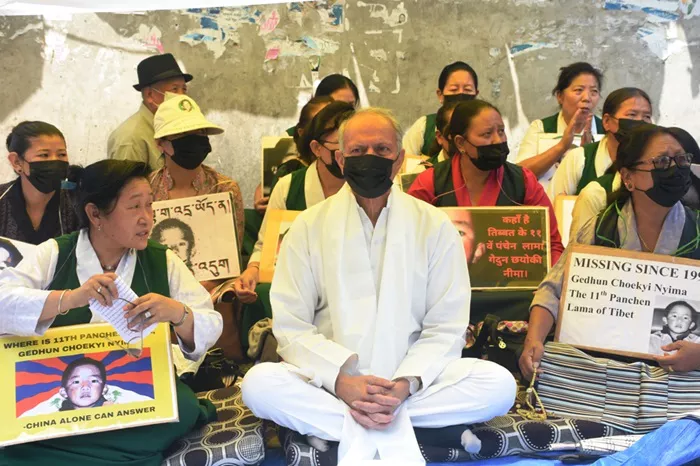Human Rights Watch on May 15 reiterated its call on China to release the 11th Panchen Lama, Gedhun Choekyi Nyima, and his parents, 30 years after he was abducted on May 17, 1995.
The New York-based international human rights organization said the issue has become more urgent given that the Dalai Lama will turn 90 on July 6, 2025, and the two highest Tibetan spiritual leaders have historically played a key role in identifying each other’s reincarnations. Human Rights Watch said it is a good opportunity for Buddhist countries to make their voices heard.
The organization pointed out that the issue of the succession of the current 14th Dalai Lama, as well as the future of Tibetan Buddhism and the Tibetan people, is becoming increasingly urgent. The Dalai Lama recognized the then six-year-old Gedhun Choekyi Nyima as the 11th Panchen Lama three days ago, but the Chinese government forcibly disappeared him. Even his photos, as well as those of the Dalai Lama, are banned in Tibet.
The group’s China researcher, Yalkun Uluyol, said the six-year-old and his family had been abducted and missing for 30 years now in an effort to “control the election of the next Dalai Lama and, therefore, Tibetan Buddhism itself.”
The group’s May 15 statement noted that since then, the human rights situation in Tibet has deteriorated and the Chinese government has tightened its control over Tibet, which includes the Tibet Autonomous Region and neighboring Tibetan autonomous regions in Qinghai, Sichuan, Gansu and Yunnan provinces, especially since 2008.
Since the massive crackdown on popular protests that engulfed the Tibetan plateau in 2008, Chinese security forces have maintained a heavy presence in Tibet and have severely restricted access to and travel to Tibetan areas. Any questioning of government policies, no matter how slight, can result in arbitrary detention or long-term imprisonment, prosecution, enforced disappearance, or even torture.
Authorities maintain a highly intrusive mass surveillance system in Tibet, require Tibetans to use Mandarin as the language of instruction in schools, and force many to relocate en masse from their long-time villages to newly built government settlements. Authorities have also made it extremely difficult for Tibetans to travel abroad or obtain passports, and have imposed severe penalties on those who contact relatives or others outside the country.
China has further tightened its control over Tibetan monasteries since it issued regulations in 2007 giving it ultimate authority to identify the reincarnation of lamas. In 2012, nearly all Tibetan monasteries were placed under the direct control of resident Chinese government officials.
Since 2018, Chinese authorities have required all lamas to meet “four criteria,” including being “politically reliable” and “reliable at critical moments.” The criteria are believed to involve supporting the Chinese government’s selection of the next Dalai Lama and any other reincarnated lamas, the statement said.
The group expressed disappointment that China has not responded to repeated calls from the international community, including the United Nations and the European Parliament, for information on, access to, and release of the 11th Panchen Lama.
The statement recommended that relevant governments, especially those with large Buddhist populations such as Japan, South Korea, Mongolia, Taiwan and India, speak publicly to defend the right of Tibetans to exercise religious freedom on the 30th anniversary of the Panchen Lama’s enforced disappearance, saying it was an appropriate time.

